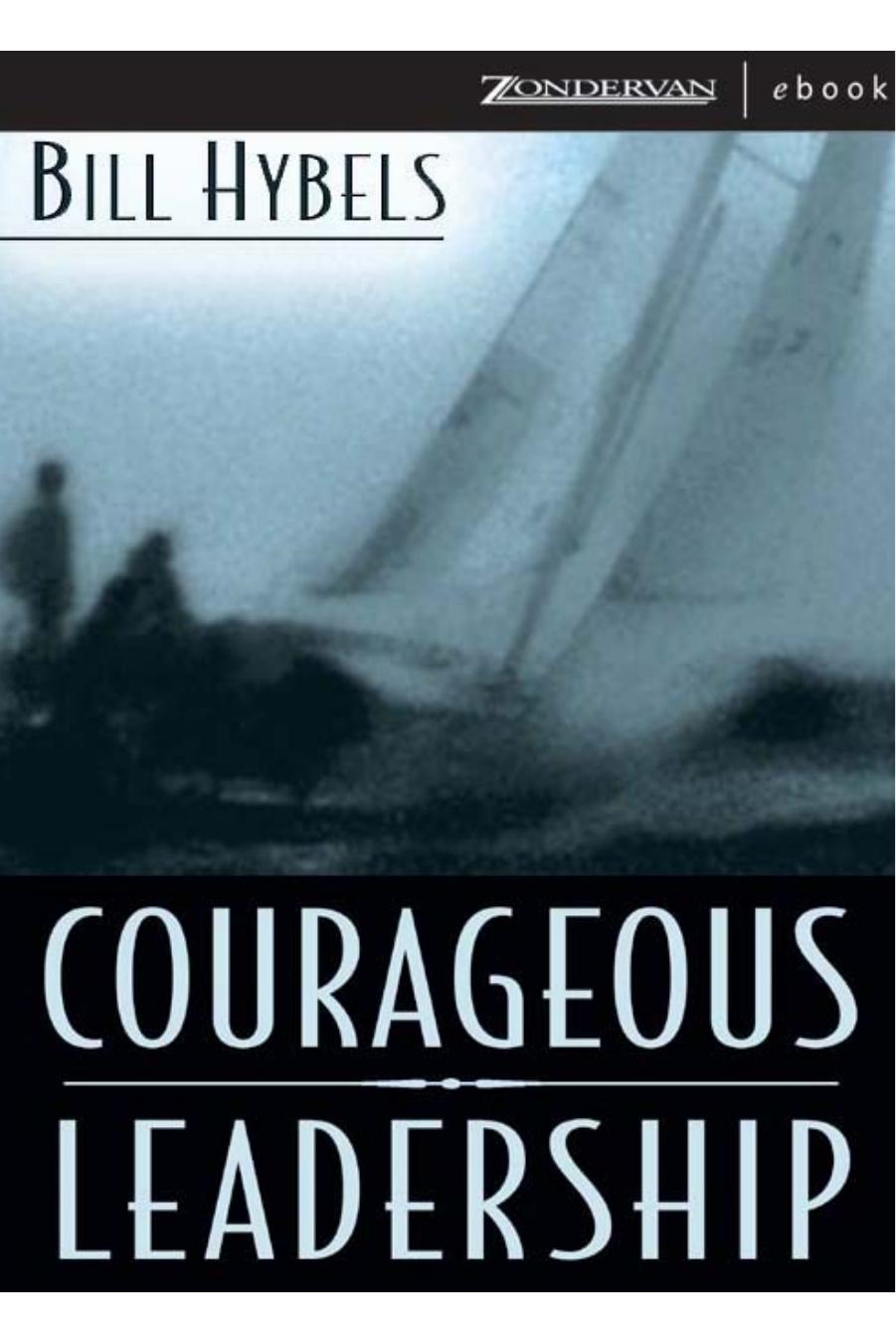Courageous Leadership by Bill Hybels

Author:Bill Hybels
Language: eng
Format: mobi, epub, pdf
Tags: Leadership, Christian Ministry, Pastoral Resources, Religion, Growth, Christian Church
ISBN: 9780310565727
Publisher: Zondervan
Published: 2002-07-31T22:00:00+00:00
CHAPTER SEVEN
Discovering and Developing Your Own Leadership Style
The Key to High-Impact Leading
The expression on his face said it all. When I placed my hand on his shoulder and said, “I see leadership qualities in you. You should develop your God-given potential,” he replied by wordlessly shaking his head, even as he smiled at the possibility. I could guess the reason for his conflicted response. In his mind, a leader was someone who confidently stood in front of crowds casting vision and motivating the masses, a person born to thrive in the public eye. He simply didn’t think he fit the mold.
And he didn’t. Not that particular mold anyway. But I had not misread him. He was a leader.
Through the years I’ve learned that leadership actually has many faces. The man in whom I’d spotted leadership potential simply had a different style of leading than the more common leadership type to which he had compared himself. Over time, as his style of leadership fell into sync with an appropriate leadership need in his church, he became a high-impact lay leader.
Different leadership styles are the subject of an insightful book called A Certain Trumpet by author Garry Wills. In this book Wills describes different styles of leadership and theorizes that, historically, certain leaders have had unusually high impact because their particular style of leadership meshed perfectly with a specific need in society.
For example, he states that when a certain segment of society needs to break free from a yoke of oppression, a radical leader is called for—a transforming leader.
In American culture, Harriet Tubman was such a leader. As a runaway slave, she became one of the most active guides, or “conductors,” for the Underground Railroad. Respectfully known as “Moses,” she had great impact because her style of leading met a society’s pre-emancipation need for a leader daring enough to embrace the goal of liberation.
What kind of leader best meets the needs of a complex pluralistic democracy like the United States? Wills argues that people like Lee Iacocca or Norman Schwarzkopf—leaders with an autocratic leadership style—would be disastrous. A better fit would be someone who could gradually form consensus across a wide constituent base and eventually form a united coalition. That’s why men like Washington, Lincoln, and Roosevelt were such popular and effective leaders; their leadership styles meshed well with the needs of a complex pluralistic society.
Wills asserts that in times of war a military style of leadership works best; hence a Napoleon rises to the top. In times of intense ideological struggle, a nation is best served by an intellectual leader who can help a society think through complicated issues on a collective level. An example of an intellectual leader is Vaclav Havel, the playwright and social activist who, after the collapse of Communism, was elected president of Czechoslovakia and later of the Czech Republic, serving as the moral and ethical force in the country’s politics.
Will’s fascinating approach to leadership supports an observation I have been making about church leaders for many years.
Download
Courageous Leadership by Bill Hybels.epub
Courageous Leadership by Bill Hybels.pdf
This site does not store any files on its server. We only index and link to content provided by other sites. Please contact the content providers to delete copyright contents if any and email us, we'll remove relevant links or contents immediately.
The 5 Love Languages: The Secret to Love That Lasts by Gary Chapman(9782)
The Space Between by Michelle L. Teichman(6927)
Assassin’s Fate by Robin Hobb(6197)
Wiseguy by Nicholas Pileggi(5766)
Everything Happens for a Reason by Kate Bowler(4729)
Gerald's Game by Stephen King(4638)
Pillow Thoughts by Courtney Peppernell(4271)
A Simplified Life by Emily Ley(4156)
The Power of Positive Thinking by Norman Vincent Peale(4053)
Harry Potter and the Prisoner of Azkaban (Book 3) by J. K. Rowling(3346)
Resisting Happiness by Matthew Kelly(3336)
Girl, Wash Your Face by Rachel Hollis(3275)
Being Aware of Being Aware by Rupert Spira(3272)
The Code Book by Simon Singh(3175)
The Secret Power of Speaking God's Word by Joyce Meyer(3165)
More Language of Letting Go: 366 New Daily Meditations by Melody Beattie(3017)
Real Sex by Lauren F. Winner(3006)
Name Book, The: Over 10,000 Names--Their Meanings, Origins, and Spiritual Significance by Astoria Dorothy(2974)
The Holy Spirit by Billy Graham(2941)
